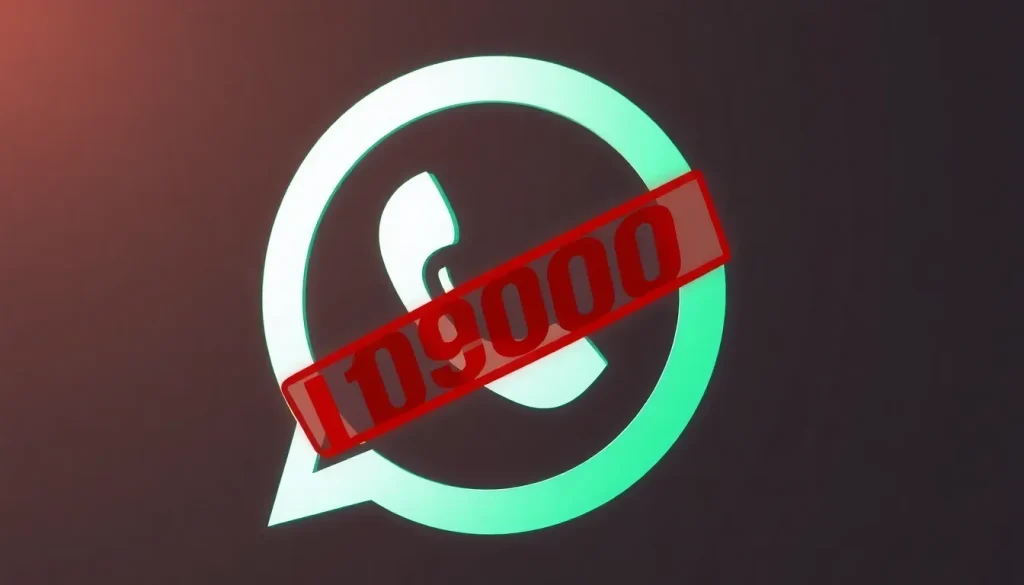OpenAI's 1-800-ChatGPT Service on WhatsApp Discontinued

In the rapidly evolving landscape of artificial intelligence, competition is fierce, and companies are constantly vying for user attention. One of the latest developments highlights the increasingly complex relationship between tech giants, particularly Meta and OpenAI. As we explore the changes in service offerings, it becomes clear that the digital communication landscape is shifting in significant ways.
As of January 15, 2026, OpenAI's 1-800-ChatGPT service, which allowed users to interact with the ChatGPT AI model via WhatsApp, will cease to exist. This change has raised eyebrows and questions regarding the motivations behind this decision.
Changes to OpenAI's WhatsApp Services
OpenAI recently announced that due to alterations in Meta's policies, the 1-800-ChatGPT service will be discontinued. This facility had become increasingly popular, serving over 50 million users worldwide by enabling easy access to the ChatGPT language model through simple calls or messages.
OpenAI has provided some recommendations for users affected by this change:
- Download the ChatGPT app on your device—available for Android, iOS, or desktop.
- Create an account and log in to the ChatGPT app.
- Link your account to WhatsApp by navigating to the 1-800-ChatGPT contact profile and clicking the provided URL.
Once linked, users will find that their phone numbers are associated with their ChatGPT accounts, enabling them to access their previous WhatsApp conversations within the ChatGPT interface. This transition aims to ensure that users can still interact with the AI in a seamless manner, despite the discontinuation of the WhatsApp service.
Understanding the Reasons Behind the Shutdown
The decision to discontinue the 1-800-ChatGPT service appears to stem from Meta's desire to promote its own AI offerings, particularly its Llama language models. With Meta making considerable efforts to enhance its presence in the AI space, including placing its "Meta AI" prominently within WhatsApp's search functionality, the competition for user engagement is intensifying.
This shift also highlights the broader context of AI competition, where companies are not only developing their technologies but are also strategically managing how those technologies are presented to users. With the rapid advancements in AI, such as OpenAI's recent launch of the ChatGPT Atlas browser, the stakes are higher than ever.
Alternatives and Future Prospects
For those looking for alternatives to the now-discontinued service, there are several options. Users can explore various AI applications that offer similar functionalities. Some of these options include:
- Dedicated AI chat applications that provide personalized interactions.
- Integration of AI through other messaging platforms that support chatbot functionalities.
- Utilizing browser-based AI applications to access language models directly.
As the landscape evolves, it is likely that new services will emerge, presenting innovative ways for users to interact with AI technologies.
The Legal Implications of Using AI on Messaging Platforms
With the increasing integration of AI tools on platforms like WhatsApp, questions surrounding the legality and ethical implications of using such technologies are becoming more prevalent. Users must consider:
- The terms of service of the messaging platform and any restrictions on third-party integrations.
- Data privacy concerns related to sharing personal information with AI systems.
- The potential consequences of relying on AI for sensitive communications.
Understanding these factors is crucial for users who wish to navigate the AI landscape responsibly.
Competition in the AI Space
Meta's actions may also reflect a broader trend of competitive maneuvers in the AI sector. The tech giant faces stiff competition not only from OpenAI but also from other players like Google and Microsoft. Each company is striving to carve out its niche in the market, leading to:
- Increased investment in research and development of AI technologies.
- Strategic partnerships and collaborations to enhance product offerings.
- Heightened marketing efforts to capture user attention across various platforms.
As the competition heats up, users can expect to see even more advancements and innovations from these companies.
Exploring OpenAI's New Ventures
Following the discontinuation of the 1-800-ChatGPT service, OpenAI is making strides in other areas. Recently, the company launched the ChatGPT Atlas, a dedicated AI browser that allows users to interact with the ChatGPT model in a more integrated environment. Currently available on macOS, it is set to expand to Windows, iOS, and Android, further diversifying its accessibility.
This new browser aims to streamline user experience, providing a more cohesive platform for engaging with AI. As OpenAI continues to innovate, it remains to be seen how these changes will influence user preferences and the competitive dynamics within the tech industry.
Staying Informed
As changes unfold in the tech landscape, it is essential for users to stay informed. Following credible sources and keeping an eye on industry developments can help users make informed decisions about the tools they choose to integrate into their digital lives. For the latest updates, you can follow Wccftech on Google.
To further explore the implications of these changes, you may find this insightful video helpful:
As we navigate these developments, understanding the interplay between technological change and user needs will be vital for everyone involved in the digital ecosystem.




Leave a Reply